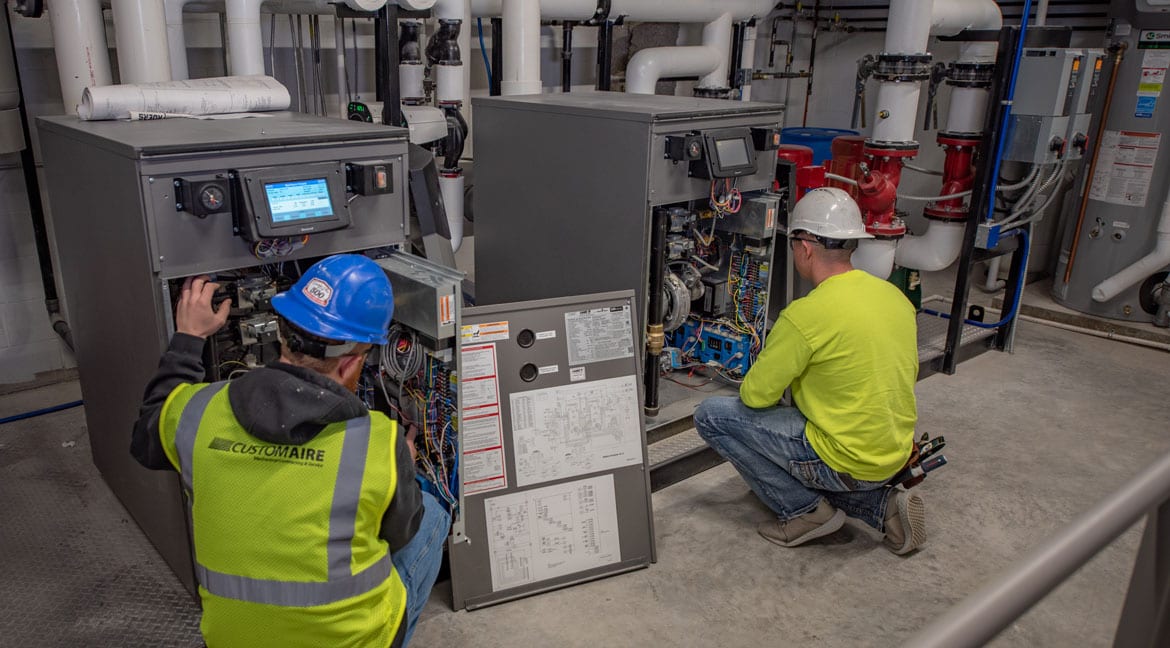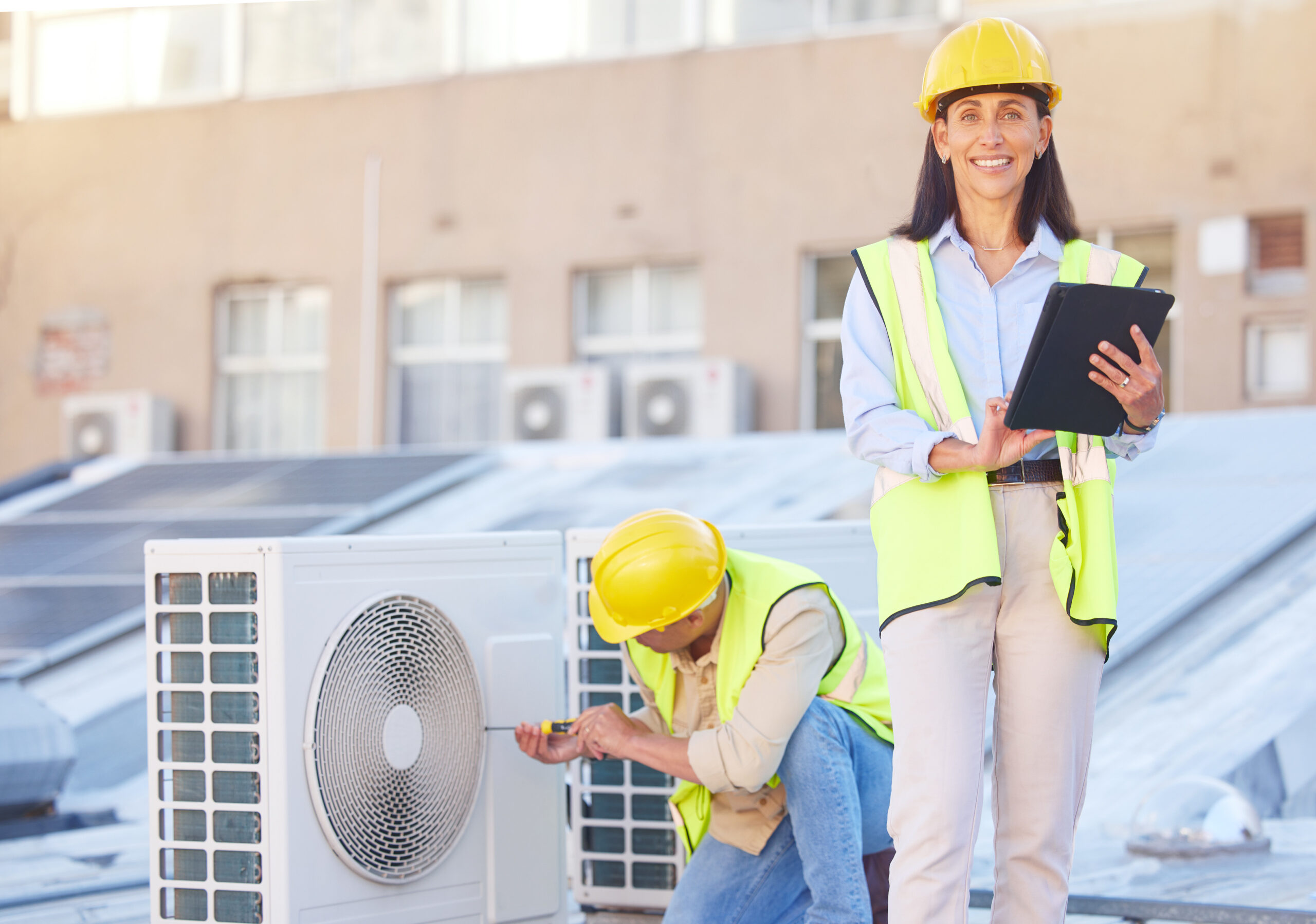How to Choose for Your heat pump replacement ooltewah tn
Wiki Article
Picking In Between a Warmth Pump and Heating System: Secret Considerations for Your HVAC Demands
When assessing home heating choices for cooling and heating requires, the decision between a heat pump and a heater can be complicated. Each system supplies unique benefits tailored to certain environments and energy performance goals. Understanding these distinctions is necessary for making an educated selection. Key aspects such as installment prices and environmental influence better complicate the option procedure. Which choice truly straightens with one's comfort and sustainability choices? The adhering to sections will certainly check out these factors to consider thoroughly.Recognizing Warm Pumps: Exactly How They Work and Their Benefits
While several house owners consider numerous heating alternatives, recognizing exactly how heat pumps feature and their advantages can substantially influence their choice. Heatpump operate by moving heat rather than creating it. In the wintertime, they remove warm from the outside air or ground and transfer it inside your home, while in the summer, they reverse this process, cooling down the home by removing warm outside. This twin performance makes them functional for year-round climate control.One of the main benefits of heatpump is their energy effectiveness. They utilize significantly much less power compared to standard home heating systems, potentially leading to lower utility bills (ductless mini splits). Furthermore, heatpump have a smaller carbon impact, making them an environmentally pleasant selection. They also need less upkeep than standard systems, adding to long-term cost savings. In general, recognizing the technicians and advantages of heatpump can aid house owners make notified choices concerning their home heating and cooling down requirementsChecking Out Heaters: Kinds, Procedure, and Advantages
Furnaces are available in different types, including gas, electrical, and oil designs, each with unique functional mechanisms. Comprehending these distinctions is important, as they influence performance and home heating performance. Furthermore, heating systems provide various benefits, such as regular warmth outcome and dependability in colder environments.Sorts of Heating systems
Furnace can differ considerably in layout and procedure, with heating systems being a preferred option among homeowners. There are several sorts of heaters, each using various gas sources and technologies. Gas heaters are usual, leveraging all-natural gas to produce warm successfully. Electric heaters, on the other hand, make use of electrical resistance to produce warmth, often preferred for their simple installation. Oil furnaces, while much less typical, work in locations with limited gas accessibility (ductless mini splits). Additionally, condensing heating systems make the most of power efficiency by recycling and catching exhaust gases. Each kind operates with a system of heat exchangers and ductwork to distribute cozy air throughout a home. Understanding the differences between these heating system kinds is important for educated heating and cooling choicesBenefits of Heaters
For property owners looking for reliable warmth during cool months, the benefits of furnaces are considerable. Heaters supply consistent heating, making sure also temperature levels throughout the home. They are particularly efficient in extreme chilly, frequently outmatching heat pumps in freezing conditions. Different types, including gas, electric, and oil heating systems, supply versatility to meet diverse demands and preferences.Furnaces likewise often tend to have reduced first installment prices compared to warm pumps, making them a much more obtainable option for numerous. Their robust layout adds to a longer lifespan, with numerous units lasting over 15 years with appropriate upkeep. Furthermore, modern heaters are commonly geared up with sophisticated innovation for enhanced effectiveness, which can result in decreased energy bills. Overall, furnaces continue to be a trustworthy selection for efficient home heating.
Energy Effectiveness: Contrasting Warmth Pumps and Furnaces
When contrasting power efficiency in between heatpump and furnaces, the Seasonal Energy Performance Ratio (SEER) plays an important duty in determining efficiency. Furthermore, a functional cost evaluation discloses the long-lasting monetary effects of each system. Comprehending these elements can assist house owners in making educated choices about their heating options.Seasonal Power Performance Ratio
Power efficiency plays a necessary duty in the decision-making procedure between heatpump and heaters, specifically when considering the Seasonal Energy Efficiency Ratio (SEER) This statistics procedures the cooling efficiency of warm pumps over an entire cooling season, offering a standardized method to examine efficiency. Higher SEER ratings indicate better power performance, converting to reduced energy consumption and decreased utility bills. In comparison, heaters are commonly analyzed utilizing the Yearly Gas Utilization Efficiency (AFUE) ranking, which shows home heating efficiency. When contrasting these 2 systems, house owners need to focus on SEER scores for heatpump, as they straight effect total power savings and ecological sustainability. A comprehensive understanding of SEER can significantly affect the long-lasting complete satisfaction and cost-effectiveness of the picked heating and cooling service.Operational Expense Analysis
Understanding the functional expenses connected with heatpump and furnaces is essential for homeowners evaluating their alternatives. Heatpump normally use higher power effectiveness, converting electrical energy right into warm with very little waste. This causes lower monthly energy bills, specifically in moderate climates. Alternatively, conventional furnaces, particularly gas designs, may have lower ahead of time prices yet can sustain greater operational costs in time as a result of fuel costs and efficiency ratings.Moreover, heatpump can operate as both heating and cooling down systems, potentially lowering the need for different cooling and heating systems. While first financial investments for heatpump may be greater, their long-lasting savings in energy performance can make them an extra affordable selection for many families. Mindful analysis of local energy rates is important to identify the most effective alternative.Installment Expenses: What to Anticipate for every Heating System
Setup expenses for heating unit can vary considerably in between warm pumps and heaters, influencing homeowners' choices. Heatpump generally have higher ahead of time installation costs, typically varying from $3,500 to $8,000, depending on the unit dimension and complexity of installation. This includes the exterior device, interior handling system, and essential ductwork modifications. Alternatively, heating systems have a tendency to have lower initial costs, averaging in between $2,500 and $6,000, which can be appealing for budget-conscious house owners. However, installment expenses can enhance if comprehensive ductwork is required.Moreover, the option of gas type for heaters-- gas, lp, or electric-- can additionally impact installation expenses. While heatpump use power efficiency, their initial investment might discourage some purchasers. Inevitably, examining installation expenses together with long-lasting cost savings and effectiveness will certainly help homeowners in making educated decisions regarding their furnace.Environment Factors To Consider: Which System Does Better in Your Area
How do climate conditions influence the effectiveness of home heating systems? The efficiency of warm pumps and heating systems can differ significantly depending on the regional climate. In moderate environments, heatpump succeed by efficiently transferring heat from the outdoors air, making them an energy-saving choice. Nevertheless, their performance reduces in extremely chilly temperatures, where they may battle to draw out sufficient warm. On the other hand, heaters, specifically gas models, provide consistent and trusted heat no matter exterior conditions, making them better in cooler regions.In locations that experience milder winter seasons, heatpump can operate properly year-round, providing both home heating and air conditioning. On the other hand, regions with harsh winters months commonly benefit from the robustness of furnaces. Eventually, recognizing the local environment is important when determining between a heatpump and a furnace, as it directly affects their about his operational performance and overall efficiency.Upkeep Requirements: Long-Term Take Care Of Warmth Pumps vs. Furnaces
While both heat pumps and heating systems require regular maintenance to ensure peak efficiency, their particular demands and care regimens differ significantly. Heating systems typically require much less regular attention, with annual assessments sufficing to look for gas leakages, clean filters, and examine general capability. Their easier style commonly permits simple repairs.In comparison, warm pumps necessitate semiannual maintenance because of their dual function in heating & cooling. This consists of cleansing coils, inspecting cooling agent levels, and making certain that both the interior and outside systems work at their ideal. Furthermore, heatpump upkeep frequently entails more intricate elements, making professional maintenance essential.Neglecting maintenance can bring about decreased performance and enhanced power expenses for both systems. Inevitably, house owners should think about these long-lasting treatment needs when choosing between a heat pump and a furnace, as aggressive maintenance can prolong the life-span and efficiency of either system significantly.Ecological Influence: Choosing a Sustainable Home Heating Choice
The environmental influence of furnace is an essential examination for house owners seeking lasting alternatives. Heatpump are normally a lot more energy-efficient than conventional furnaces, as they transfer warmth as opposed to create it, considerably decreasing carbon discharges. By making use of renewable resource sources, such as air-source or geothermal warmth pumps, property owners can additionally reduce their eco-friendly footprint.On the other hand, gas furnaces discharge greenhouse gases and add to air contamination, though they usually give greater heat output. Innovations in innovation have actually led to the growth of high-efficiency heaters that decrease emissions.Ultimately, picking a home heating system includes evaluating effectiveness against ecological effect. Home owners are urged to show on regional energy resources and rewards for sustainable systems, making certain an option that straightens with both personal comfort and ecological obligation. The decision impacts not just immediate convenience yet also long-term sustainability and ecological health.Frequently Asked Inquiries
For How Long Do Warm Pumps and Furnaces Usually Last?
The life expectancy of heat pumps usually varies from 15 to two decades, while heaters can last in between 15 to three decades. Routine upkeep significantly impacts their longevity and efficiency in offering home heating solutions.Can I Utilize a Heat Pump in Very Cold Climates?
Heatpump can operate in incredibly cold climates, but their performance diminishes as temperature levels decrease. In such problems, supplemental heating resources might be necessary to maintain comfortable indoor temperature levels and guarantee peak efficiency.
What Is the Sound Degree of Warm Pumps Versus Furnaces?
The sound degrees of heatpump and furnaces differ considerably. Usually, heatpump operate even more quietly than typical heating systems, making them more effective for those sensitive to seem, while heating systems may produce louder functional sounds during heating cycles.
Are Heat Pumps Suitable for Both Heating & Cooling?
Heat pumps are undoubtedly ideal for both cooling look at here now and heating (heat pump installation ooltewah tn). They operate by transferring warmth, supplying efficient temperature level control year-round, making them a functional choice for home owners looking for an all-in-one HVAC remedyWhat Dimension Heater Do I Need for My Home?
Determining the proper size furnace for a home calls for reviewing variables such as square video footage, insulation quality, regional climate, and the home's format. Consulting a professional can guarantee an exact analysis and perfect convenience. Warm pumps typically use greater power performance, transforming electrical power into warmth with very little waste. In modest environments, warm pumps excel by successfully transferring warmth from the outdoors air, making them an energy-saving choice. On the other hand, heating systems, especially gas versions, provide reliable and regular warmth no matter of outside conditions, making them better in colder regions.In areas that experience milder winter seasons, warm pumps can run efficiently year-round, giving both home heating and cooling. Warm pumps are generally extra energy-efficient than traditional heaters, as they move warm rather than create it, considerably minimizing carbon exhausts. By making use of read more eco-friendly energy resources, such as geothermal or air-source warmth pumps, home owners can further minimize their ecological footprint.On the other hand, all-natural gas furnaces send out greenhouse gases and add to air contamination, though they typically offer greater warmth result.Report this wiki page